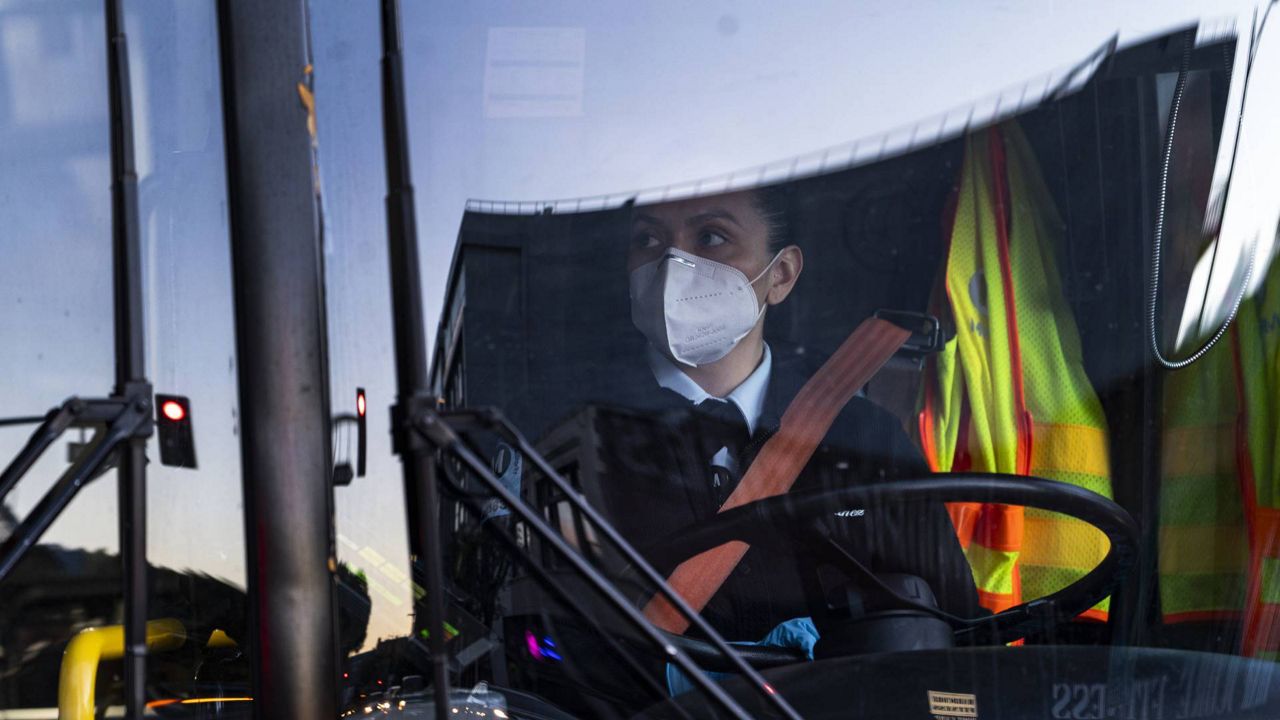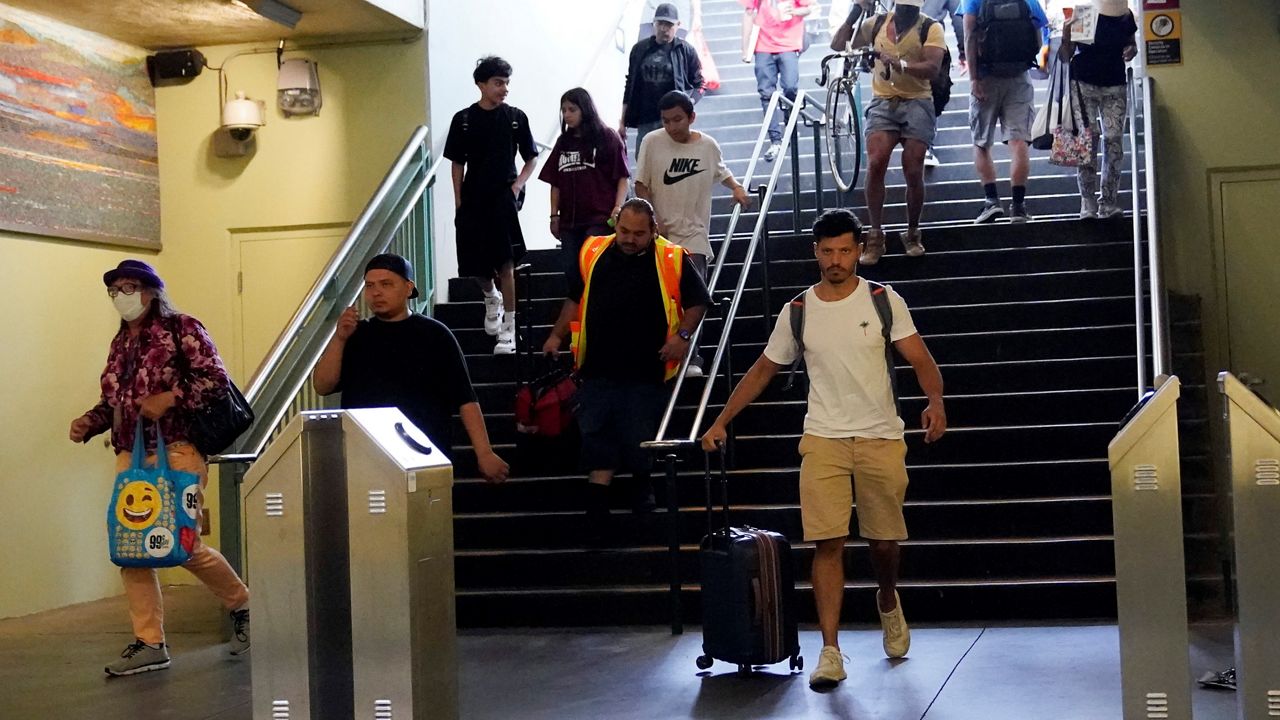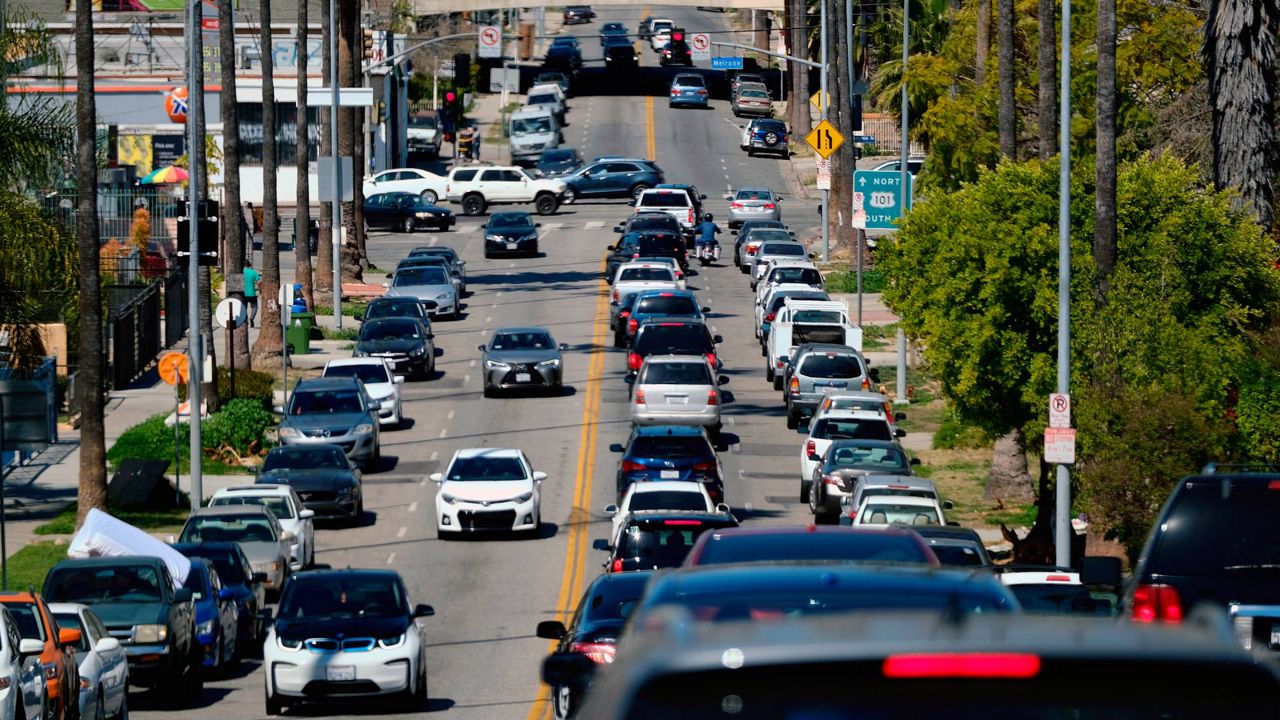LOS ANGELES — Smoking and littering aren’t allowed on Metro trains and buses, but that doesn’t mean travelers always abide by the rules.
Too often, a rider takes a seat only to find a messy food wrapper or has to move because a fellow passenger lit up a cigarette or joint. Poor passenger behavior is one of the top concerns transit riders have when they consider whether to take a train or bus, Metro officials say.
On Monday, the Los Angeles County Metropolitan Transportation Authority launched a new awareness and compliance campaign called Keep Metro Clean and Safe. Its goal: to remind people that they can’t smoke or litter and that they need to wear a mask.
“The focus is shared responsibility,” said Aaron Weinstein, Metro’s executive officer for customer experience. “Our riders really feel the Metro system is their system, and they would want to take care of it like they would their home or property, so that’s what we want to promote.”
Metro is now making audio announcements on its buses and trains and also using printed announcements to remind customers that they shouldn't smoke or litter. In addition, it's encouraging people to wear a face mask, as required by the U.S. Centers for Disease Control and Prevention. As part of the campaign, Metro staff will do mask distributions at pop-events and also hand them out on trains and buses.
Related Stories
- Metro offering free rides for today's gubernatorial recall election
- Metro is hosting vote-by-mail ballot drop boxes, free rides on Election Day
- New initiatives putting Inland Empire on track to become major transportation hub
- Metro board begins process to receive nearly $1.5 billion through American Rescue Plan
The campaign is not punitive, Metro says. It’s meant to create a positive environment for the people who use the system, with Metro staff asking people to comply.
The campaign is an outgrowth of a new customer experience program Metro quietly launched last year to get input from customers about what they encounter when they take county-run buses and trains and to develop actions that address their concerns.
It's also part of a larger program to attract new riders and to regain lost ridership as the COVID-19 pandemic wanes. In August, Metro ridership had increased to 767,917 average weekday boardings, having plummeted to 364,000 in April 2020. Prior to the pandemic, Metro ridership averaged 1.2 million passengers daily.










